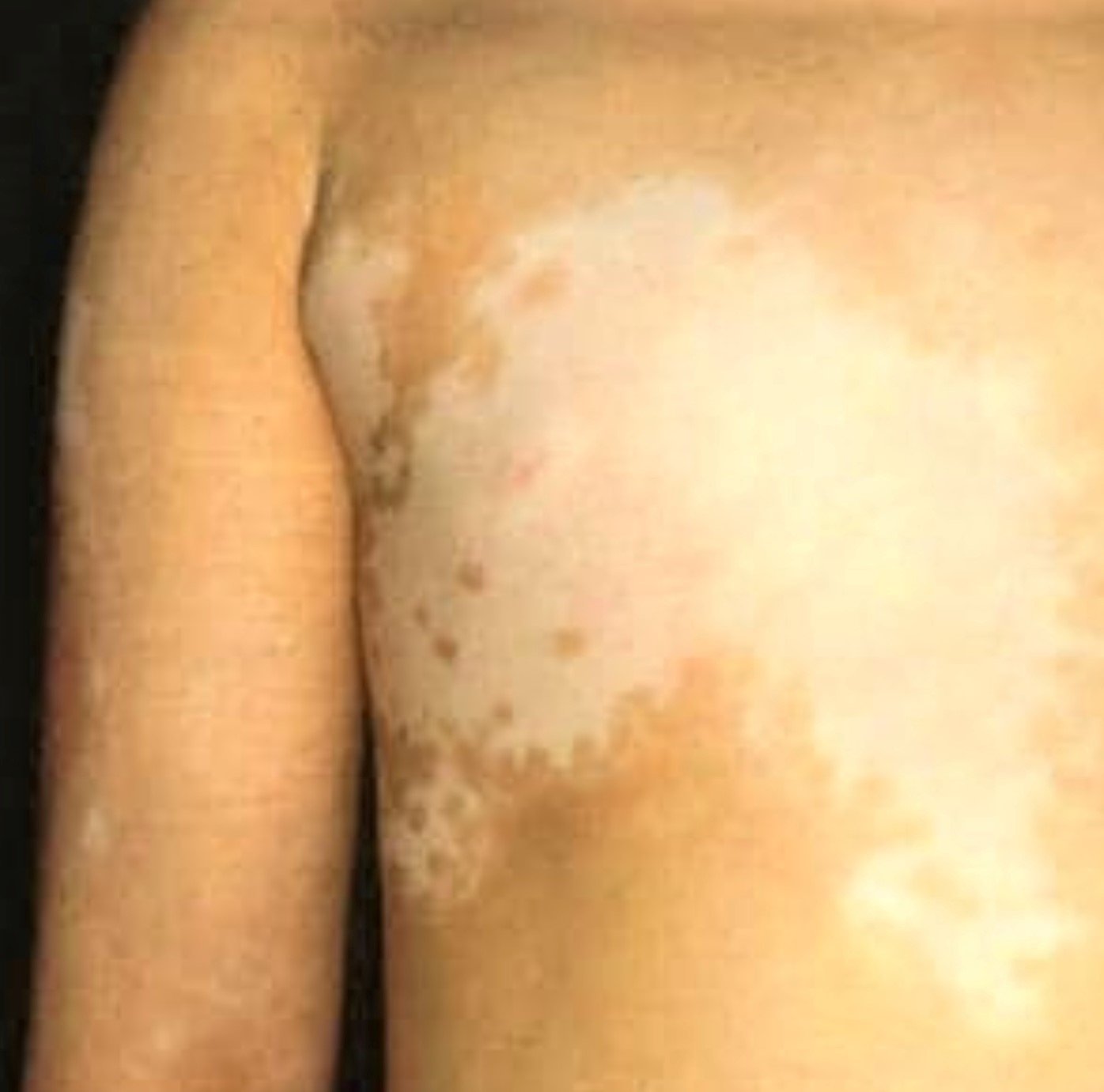
Chijioke Iremeka
Dermatologists say people with vitiligo are predisposed to certain health conditions, majorly among them hearing impairment, vision and consistent sunburn.
Social and psychological distress, were also challenges the experts highlighted they might face.
They, however, advised anyone that notices discolouration in any area of the skin, hair or mucous membrane to urgently seek medical intervention.
The dermatologists explained that vitiligo is an acquired condition of the skin with reduced or absent colouration/pigmentation that leaves some areas with white patches compared to other areas of the body.
They attributed the skin discolouration to the absence or non-function of cells called melanocytes responsible for the colouration of the skin.
According to the National Library of Medicine, vitiligo is a systemic disease that can be associated with the impairment of melanocyte function organs other than the skin, which include the eyes and ears.
It noted that the function of auditory melanocytes is related to the hearing process and thus their destruction could lead to hearing impairment.
“By contrast, ocular melanocytes do not play a direct role in the detection or transfer of visual information, and thus should not affect vision. Vitiligo may be associated with ocular abnormalities and hearing loss,” it stated.
One of the experts, a Clinical and Cosmetic Dermatologist, Adrienne Haughton, said the discoloured areas, which usually get bigger with time, could also affect hairs and mucous membrane inside the mouth.
The dermatologist, who is the Director of Residency Programme at the Renaissance School of Medicine, USA, further noted that the medical condition is characterised by premature whitening of the hair on the scalp, eyelashes, eyebrows, nose and beards, adding that the disease can start at any age, but usually appears before age 30.
Haughton, who is also the Assistant Vice Chair, Director of Clinical and Cosmetic Dermatology, Commack, New York, United States, said, “Normally, the colour of hair and skin is determined by melanin. Vitiligo occurs when cells that produce melanin die or stop functioning.
“It affects people of all skin types, but it may be more noticeable in people with brown or black skin. The condition is not life-threatening or contagious, but it can be stressful or make the person to develop low-self esteem.
“Treatment for vitiligo may restore colour to the affected skin. But it doesn’t prevent continued loss of skin colour or a recurrence.”
A Consultant Dermatologist and Venereologist at the Irrua Specialist Teaching Hospital, Irrua, Edo State, Dr. Sebastine Oiwoh, said vitiligo can have disturbing effects on the quality of life, self-esteem and mindset of the patient.
He noted that a person with vitiligo might have suicide ideas due to depression, among other psychological issues.
“Viltigo can also be associated with other autoimmune diseases, which is a situation where the body fights a part of the body. They include Graves’ disease which affects the thyroid gland, Type 1 diabetes, pernicious anaemia, alopecia areata, systemic lupus erythematosus, rheumatoid arthritis, Addison’s disease that affects adrenal glands; inflammatory bowel disease, dermatomyositis and scleroderma, among others. So, patients with vitiligo should also be assessed for these diseases,” he said.
Dr. Oiwoh said while there are reports of ear and eye impairment in those with vitiligo, more scientific work is needed to have the occurrence established.
He noted that vitiligo can be managed, but the success of its management depends on the severity, type, extent of involvement, whether or not hair is affected by the loss of melanin and the age of the patient among others.
Meanwhile, a Consultant Dermatologist and Venereologist, Dr. Folake Cole, insisted that vitiligo itself does not pose any serious danger apart from the emotional and psychological distress it has on an individual.
On if the medical condition predisposes to eye impairment or hearing loss, she said no, but confirmed that people with vitiligo tend to have other autoimmune diseases that could impact on hearing or sight.
Dr. Folake, who is also a member of the Nigerian Association of Dermatologists, however, said those with the condition should be assessed for other autoimmune diseases.
Copyright Reportr Door
All rights reserved. This material, and other digital content on this website, may not be reproduced, published, broadcast, rewritten or redistributed in whole or in part without prior express written permission from Reportr Door.
Contact: [email protected]
Leave a Reply